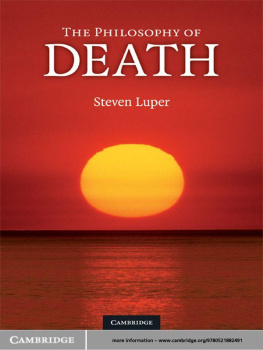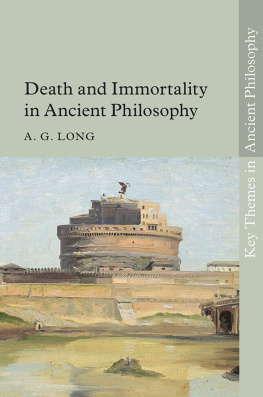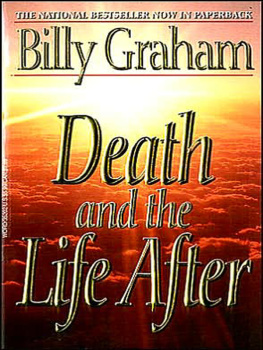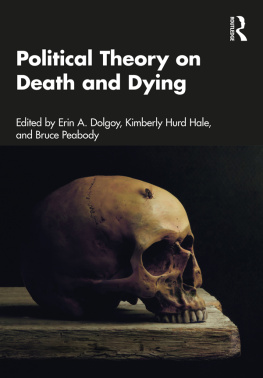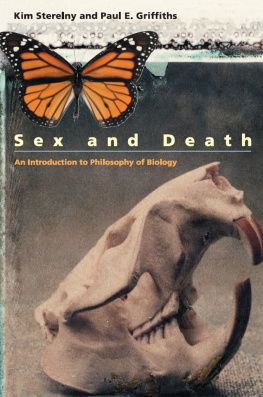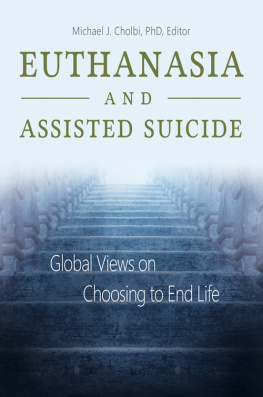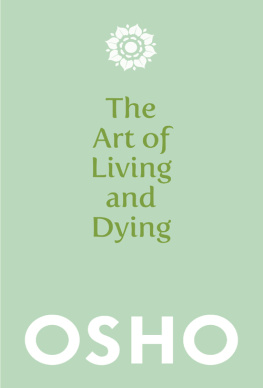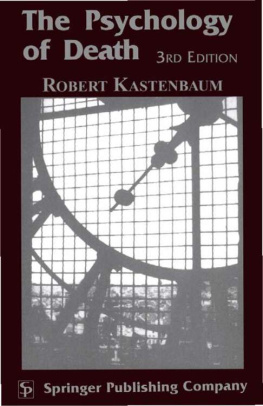The Philosophy of Death
The Philosophy of Death is a discussion of the basic philosophical issues concerning death, and a critical introduction to the relevant contemporary philosophical literature. Steven Luper begins by addressing questions about those who die: What is it to be alive? What does it mean for you and me to exist? Under what conditions do we persist over time, and when do we perish? Next, he considers several questions concerning death, including: What does dying consist in? In particular, how does it differ from aging? Must death be permanent? By what signs may it be identified? Is death bad for the one who dies? If so, why? Finally he discusses whether, and why, killing is morally objectionable, and suggests that it is often permissible; in particular, (assisted) suicide, euthanasia, and abortion may all be morally permissible. His book is a lively and engaging philosophical treatment of a perennially fascinating and relevant subject.
STEVEN LUPER is Professor and Chair of the Philosophy Department, Trinity University. He is the author of Invulnerability: On Securing Happiness (1996), and his most recent edited volumes include Essential Knowledge (2004), The Skeptics: Contemporary Essays (2003), and Existing: An Introduction to Existentialist Thought (2000).
CAMBRIDGE UNIVERSITY PRESS
Cambridge, New York, Melbourne, Madrid, Cape Town, Singapore, So Paulo, Delhi
Cambridge University Press
The Edinburgh Building, Cambridge cb2 8ru, UK
Published in the United States of America by Cambridge University Press, New York
www.cambridge.org
Information on this title: www.cambridge.org/9780521709125
Steven Luper 2009
This publication is in copyright. Subject to statutory exception and to the provisions of relevant collective licensing agreements, no reproduction of any part may take place without the written permission of Cambridge University Press.
First published in print format 2009
ISBN 978-0-511-59480-9 mobipocket
ISBN 978-0-511-59430-4 eBook (Kindle edition)
ISBN 978-0-521-88249-1 hardback
ISBN 978-0-521-70912-5 paperback
Cambridge University Press has no responsibility for the persistence or accuracy of URLs for external or third-party Internet websites referred to in this publication, and does not guarantee that any content on such websites is, or will remain, accurate or appropriate.
Acknowledgments
In writing this book, I have incurred a number of debts. Christine Gerakaris helped greatly by tracking down relevant materials. I thank her. Curtis Brown read the entire manuscript and gave me a great deal of extremely helpful feedback and suggestions. He saved me from making many errors, including errors in the formulation of comparativism. The book is much better as a result of his comments, and I am grateful. Eric Olson read and made helpful suggestions. I am grateful to him as well.
Chris Belshaw invited me to speak at a conference at York University, called Death: What it is and Why it Matters, held in July of 2008. There I received useful feedback concerning my views on suicide. I thank Chris and the participants in the conference.
I have drawn on various publications. The overall structure of the (first part of the) book is based loosely on Death, in the online Stanford University Encyclopedia of Philosophy , ed. Edward N. Zalta, 2002 (revised 2006). Much of the material in is a revision of my Mortal Harm, Philosophical Quarterly 57 (2007), 239251.
CHAPTER 1
Introduction
Suppose that in one hour you will utterly cease to exist. It would make no sense for you the present you, the person reading these words to make plans for the future you. Normally, when you look forward to your life to come, you imagine yourself carrying on with the plans you presently have for your future self, and you imagine your future self creating and launching new plans which you cannot yet know of, or acting spontaneously, perhaps simply enjoying the sun setting over the ocean. The prospect of these things to come prompts you to act now, to take some time out of your busy day to do things that will make things possible for your future self. Your future self is, after all, you. At the same time your future self is like a child whose life you are shaping now; you want your child to be happy, and to be someone of whom you can be proud, and who will think back to you fondly. Much of what you do is meaningful only if this child will thrive. Annihilation, ceasing to exist, would bring all of this planning and nurturing to an end. There would be nothing in life to look forward to no pressing on with the things you presently take to be significant, no fresh undertakings, no future self to look after, no you at all.
It seems that if death means annihilation, then for most of us, most of the time, dying would be a very bad thing.
The first part of this book is a philosophical meditation about death. Perhaps death is actually a transformation by which the life with which we are familiar is followed by some sort of afterlife in which our existence is continued. In this book I do not discuss this possibility. Instead, I simply assume that death is the end of us. I try to clarify what sort of ending it is, and what significance should be attached to it. Even those who think that death is a continuation, and not an ending, can benefit from contemplating the implications of annihilation. That annihilation would be bad for them explains why it is important to live for ever: it is the only way to avoid the evil of annihilation. If, on the other hand, annihilation would not be bad for them, the question arises as to why they value the prospect of immortality.
In dying, we are deprived of the good things we would have enjoyed had we lived on. It even precludes our regretting our loss, and our loss can be great. However, not everything death takes from us is good. It takes the bad with the good, and life can get very, very bad indeed, as anyone who suffers from the devastating loss of a loved one, or painful degenerative diseases, or the prospect of oncoming progressive dementia, is aware. In allowing us to escape these, death, it seems, can be a very good thing for us.
So perhaps death is bad for us when living on would have been good for us, and good for us when living on would have been bad for us. Most contemporary theorists who write about death defend some version of this view. It has many plausible consequences. For instance, it would be good to extend our lives significantly, if doing so permitted us to have more good life. This may well be possible, as the mechanisms behind aging are coming more clearly into view. The prospect of indefinitely extended life, under favorable conditions, is welcome indeed, in that it would make our lives as wholes our lives from beginning to end better.
There is another consequence of the view that the evilness of death derives from the goodness of the life death takes from us: disquiet concerning death is the other face of love for life. It would be absurd to avoid a tragic death by making our lives bad, or so mediocre we would not mind losing them, and doing this would only make our predicament far worse. We would be left with lives that are not worth living. Better to live well, and risk a tragic death.

